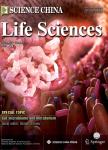Autism genetics: Methodological issues and experimental design
Autism genetics:Methodological issues and experimental design作者机构:Department of Child Neuropsychiatry and Laboratory of Molecular Psychiatry and Neurogenetics University "Campus Bio-Medico" Department of Experimental Neurosciences I.R.C.C.S."Fondazione Santa Lucia"
出 版 物:《Science China(Life Sciences)》 (中国科学(生命科学英文版))
年 卷 期:2015年第58卷第10期
页 面:946-957页
核心收录:
学科分类:1002[医学-临床医学] 100205[医学-精神病与精神卫生学] 10[医学]
基 金:supported by the Italian Ministry for University,Scientific Research and Technology the Italian Ministry of Health,the Fondazione Giuseppe e Mafalda Luce(Milan,Italy) Autism Aid ONLUS(Naples,Italy) the Autism Speaks Foundation(Princeton,NJ) the Autism Research Institute(San Diego,CA) the European Union(IMI project EU-AIMS)
主 题:autistic disorder endophenotype genetic association genetics pervasive developmental disorders
摘 要:Autism is a complex neuropsychiatric disorder of developmental origin, where multiple genetic and environmental factors likely interact resulting in a clinical continuum between affected and unaffected individuals in the general population. During the last two decades, relevant progress has been made in identifying chromosomal regions and genes in linkage or association with autism, but no single gene has emerged as a major cause of disease in a large number of patients. The purpose of this paper is to discuss specific methodological issues and experimental strategies in autism genetic research, based on fourteen years of experience in patient recruitment and association studies of autism spectrum disorder in Italy.



